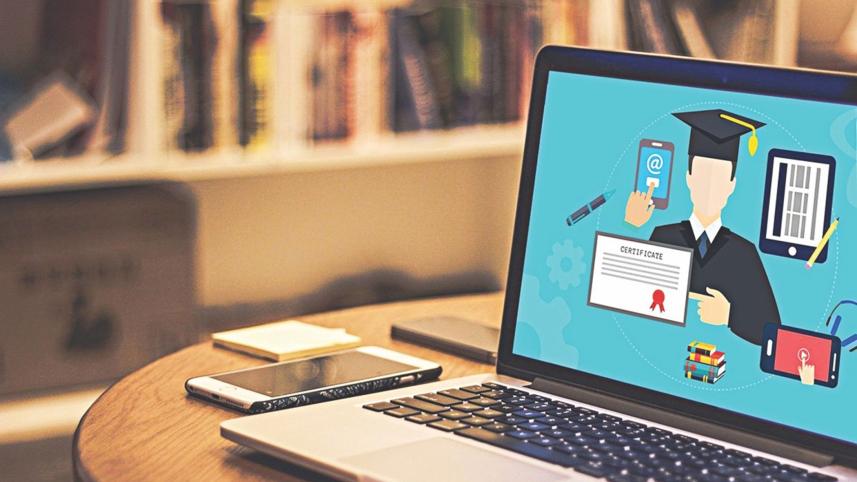Post-pandemic education must adapt to new reality

The unprecedented global pandemic that hit us early this year has, aside from exposing the cracks in our healthcare system, also brought under the spotlight the disparities that exist within our education system. For almost all of this year, our students have been kept out of classrooms, and there are fears this will continue well into 2021. While the entire world has scrambled to adapt to this "new normal" and continue to provide education, Bangladesh too has attempted to meet the needs of over four crore students through remote learning.
However, this has only exposed how dependent our education system is on traditional classroom learning. At the beginning of the pandemic, many educational institutions, especially public ones, found it difficult to shift to online learning, creating a public-private divide. A huge digital divide between urban and rural students, and between students belonging to different social classes, quickly became obvious, and there were concerns about students from rural areas with poor connectivity missing out on their education, thus further deepening social inequalities. The economic burden created by Covid-19 only added to the worries of resources being taken away from education, leading to greater dropouts, child labour and child marriage.
Against this backdrop, experts have suggested that it is high time for the government to introduce "blended learning", combining online education and traditional face-to-face classroom teaching, as well as airing recorded lessons and engaging in other forms of innovative remote learning and resource-sharing methods. However, the key word here is "innovation"—something which has, unfortunately, been lacking from our education system for a while now. The classes being shown on television for students across the country, in order to bridge gaps in access to the internet and related devices, have been criticised for being dull and repetitive, thus failing to hold children's attention. Dependency on rote memorisation, private tuition, coaching centres and guidebooks mean that even students who do have access to online classes have struggled with their lessons. While more than a crore students of classes 6-10 were promoted based on assignments and without exams, major public examinations have been postponed indefinitely, including JSC, SSC, HSC and university exams, simply because we could not come up with more innovative ways to assess students beyond traditional examination methods. Although certain public universities have decided to hold exams in 2021 following safety measures, most of them have refused to reopen dormitories and have given no instructions for students who cannot afford private accommodation in Dhaka.
While we step into this new year, our education institutions and relevant government bodies must leave behind their traditional rigidities and adapt to the new reality. They must make every effort to reduce the digital divide in Bangladesh to ensure that no student is deprived of their education. If we are to truly adopt blended learning, teachers' capacities to provide this education must also be enhanced, and the entire process of classroom instruction and examinations must change. But most importantly, the authorities must ensure that the interests of the students are at the heart of all their decision-making and that no student is left behind.



 For all latest news, follow The Daily Star's Google News channel.
For all latest news, follow The Daily Star's Google News channel.
Comments